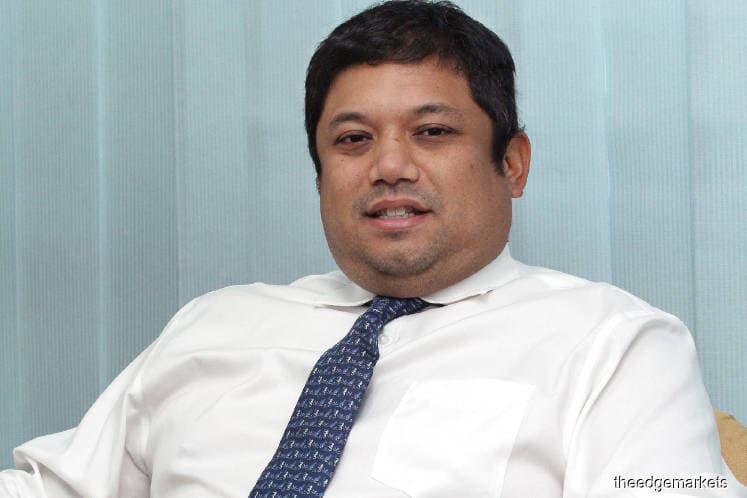
This article first appeared in The Edge Malaysia Weekly on December 25, 2017 - December 31, 2017
RUBEN Emir Gnanalingam
CEO, Westports Holdings Bhd
The Edge: Malaysians complaining about not benefiting from the strong gross domestic product growth and businesses and entrepreneurs griping about tough economic conditions in Malaysia seem to be gaining voice. Among issues cited by businesses are worker shortages (both physical numbers and suitable talent), rising labour cost, tight cash flow due to delays in Goods and Services Tax refund and uncertainties/surprises in government policies announced without industry consultation. Do you agree the business environment is getting tougher and less conducive in Malaysia? Why?
Ruben Emir Gnanalingam: I think businesses everywhere are getting more challenging. This is not a Malaysian phenomenon, but a worldwide one. The world of business revolves around the forces of supply and demand. With all the technology available today, the supply of goods and services is probably growing way faster than demand. Access to finance and technology to trade beyond borders have not helped.
Government policies, currency and even uncertainties are all part and parcel of doing business in the modern world. While many are complaining about these issues, I see many young entrepreneurs embracing them. Some even hope to profit from the challenges. Evolution will go on whether we like it or not. Companies that are not prepared to evolve will be left behind.
Malaysians need to get smarter about competition going forward. Trade barriers are no longer enough and consolidation to face global threats is probably the way forward. However, this requires a massive shift in mindset, something I think Malaysians are not ready for yet. Let’s hope our business community will not take too long to mature to do this.
An efficient Inland Revenue Board is good in terms of collection of taxes for the country, but applying the right amount of pressure is a delicate balancing act ... some quarters reckon it has yet to achieve it. In fact, there are those who think that a small group of big taxpayers — both companies and individuals — are being overly taxed, so much so future private investments, both local and foreign, may be curtailed in the medium to long term. Worse still, this may accelerate the migration of businesses elsewhere. What is your view on this?
The IRB needs to do its job. Collecting taxes has never been easy in any country. Deciphering the tax code is also sometimes quite difficult. Many countries have been having much lower business tax rates than Malaysia for a long time. I don’t see why they should suddenly change their minds now. If their business is based here and revenue is generated here, they are probably going to stay here for the same reasons they have been doing in the past. The tax code or rate has not changed actually. It’s enforcement that has become stricter. Companies just need to plan better going forward.
What would you say about Malaysia’s competitive edge? Is Malaysia at risk of losing it? Why?
Our advantage has always been our location, what comes with it and our multi-ethnic population. Our resources are depleting, but the amount of sunlight and rain we are getting has not changed much. We will remain in the middle of Southeast Asia and in the Straits of Malacca, so no change there either. Unless there is a significant migration of a particular ethnic group, I don’t see us losing our competitive edge.
In your opinion, what more can the government do and what are the challenges it faces? Could there possibly be anything hindering the progress?
The government needs to continue developing the basic infrastructure that helps connect people while ensuring that no member of society is left behind. Education needs to be emphasised further and the government needs to provide more incentives for fields that can create more jobs in the future and de-emphasise incentives for fields that are already seeing an oversupply of candidates and are about to be automated.
I also like the idea of uniting Malaysians, but I would rather the government focus on removing elements that divide us in the first place. An undivided Malaysia will definitely progress a lot faster than one that needs uniting. Hopefully, one day, we can have a nation that is truly undivided.
The lack of integrity of certain institutions and instances of corruption remain among key concerns of the people and businesses. Is this a mere matter of (mis)perception and mistrust or are greater reforms necessary? Please share your opinion.
This is an unfortunate ill facing many communities around the world, even those in the most advanced of nations and the most mature of societies. The tough stance taken by China on these issues is admirable, and Saudi Arabia, some say, seems to be somewhat following suit. Only when the issues are really taken seriously can they stand a chance of being eradicated. I am not sure how many countries are taking them seriously.
The government has been doing TN50 (Transformasi Nasional 2050) consultations. What are the three most important measures or strategic moves that should be included in the blueprint?
1) An undivided Malaysia;
2) Greater emphasis on education, especially in fields in which jobs cannot be replicated by robots in the future; and
3) A shift in mindset to understand that competition is global.
Save by subscribing to us for your print and/or digital copy.
P/S: The Edge is also available on Apple's AppStore and Androids' Google Play.